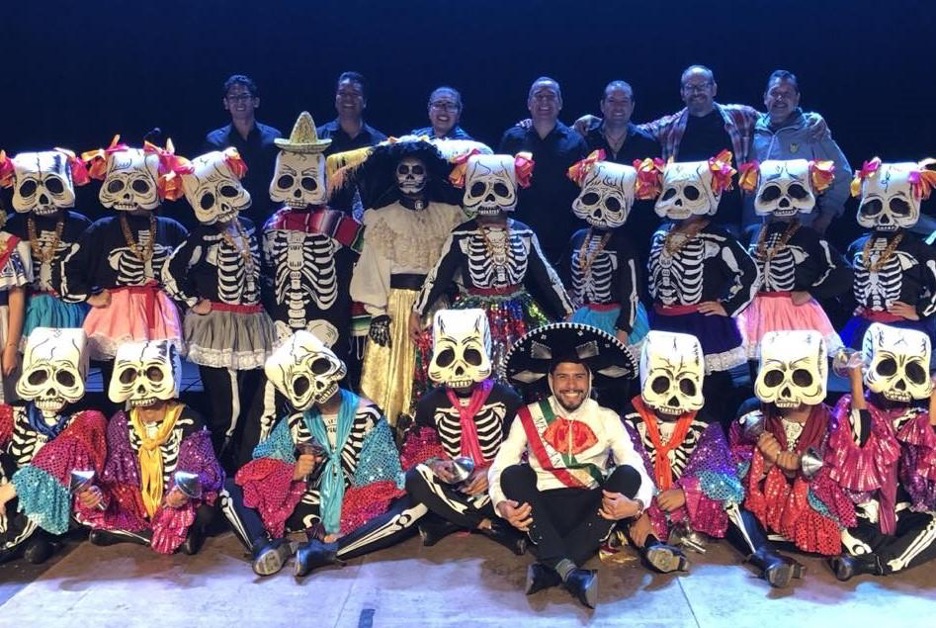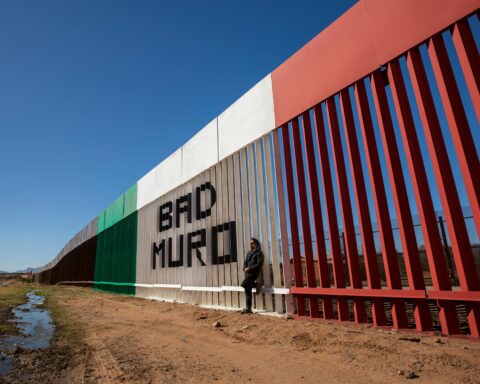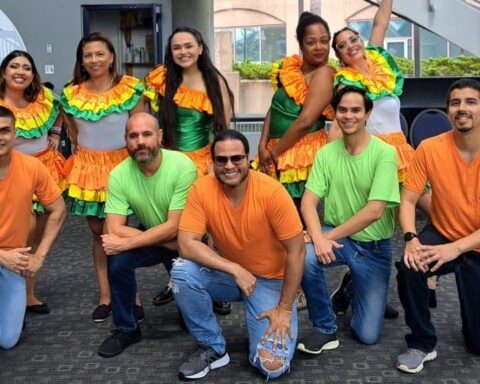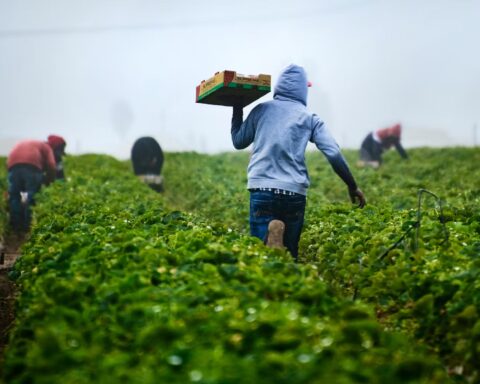Latin American immigrants in Winnipeg are shifting their national festivities fromSeptember to October to join in Canada’s national celebration of Latin American Heritage Month.
“It’s good that this celebration exists because it is an opportunity to show Canadians that we exist and what we are. Here people are a bit cold and I am glad to be able to cheer them with our culture,” said Ricardo Azote, of Mexicans of Winnipeg, who is organizing a big get-together on Oct. 8 at the West End Cultural Centre on Thanksgiving weekend.
Latin American Heritage Month was established in 2018 by the Parliament of Canada to recognize the “significant contributions to the social, economic and political fabric” from the more than 20 Spanish-speaking countries.
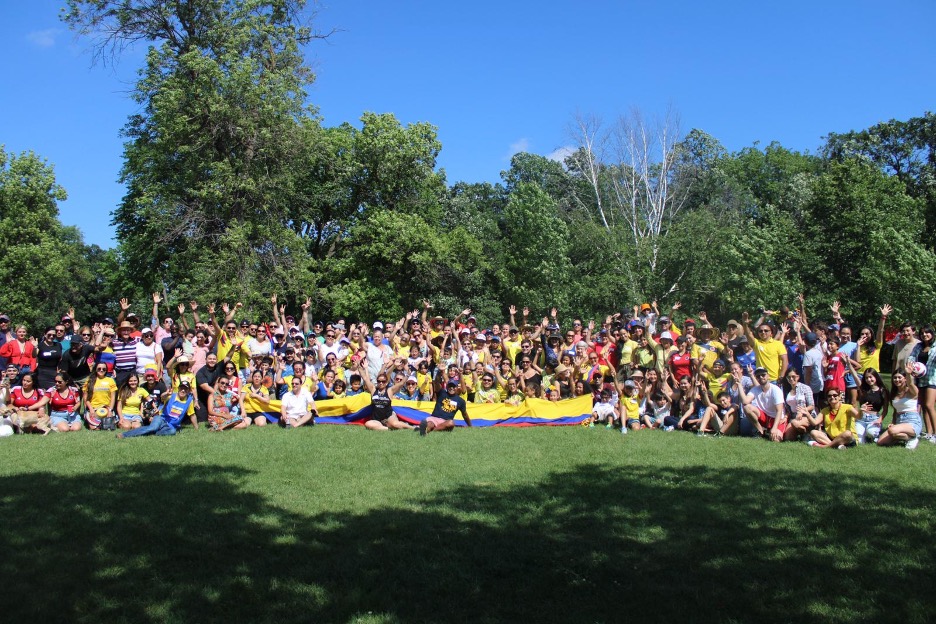
The two years of the COVID pandemic have not helped much for this Heritage Month to grow in Winnipeg compared with Toronto or Montreal, but Latinos from Mexico, Colombia, Chile, El Salvador and Ecuador, among others, are planning different celebrations for this month. Statistics Canada says there are at least 30,685 immigrants in Manitoba from the Americas (6,655 from Mexico).
Even though for some Latinos October continues to remind them of the Spanish conquest, marked by violence and exploitation of indigenous peoples, many Latino immigrants in Manitoba are eager to celebrate, share and promote their unique culture and traditions with all Canadians through food and music in festivals such as the Latin Thanksgiving or the Day of the Dead.
Azote, who works as a customs agent, added that he has met other Latinos who feel lonely because “Canadians are a bit sectarian. So, I invite them to my house even if I don’t know them. We are all one big family.” For his “mega potluck picnic”, he will invite Latinos but also Canadians.
“The important thing is to feel that we immigrants are not alone and to share the sacred food,” Azote said.
The Mex y Can Association of Manitoba is organizing the Day of the Dead celebration on Oct. 29 at the St Norbert Community Centre. Throughout Canada, this celebration – recognized by UNESCO as an Intangible Heritage of Humanity — attracts many Canadians for its great colour and symbolism where death is seen as a transition.
“Canadians travel to different places in Latin America and know our culture and traditions. When they return, they look for that reconnection and those of us who live here can offer it with great pride through our festivals,” said Mex y Can Association president Aline Tezcucano, who was recognized in 2019 by the Manitoba Museum as one of the 30 persons more representative of the province. She was the only Latina.
The Latino community in Winnipeg is growing
There are more than 1.5 million immigrants in Canada who were born in Latin America and the Caribbean, with most coming from Mexico, Colombia and El Salvador, Statistics Canada says.
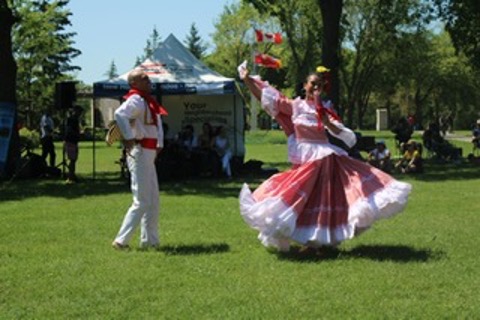
For the Colombian Diana Carolina Morales, “the Latino community in Winnipeg has grown a lot in recent years.”
Three years ago, the industrial engineer joined the Colombian Association of Manitoba, a 17-year-old organization created to help Latino newcomers and to organize Colombia Day each July 20th which has attracted more than 300 people.
“We are warm and friendly people. Canadians admire our professional skills and that we preserve our traditions,” added Morales, who is helping to organize a Latin Day with traditional food and music on Oct. 22 at the Elmwood Community Resource Centre.
With some hesitance to celebrate just Hispanic heritage, Oscar Calix, of the Canadian-Salvadorians of Winnipeg organization, said the shift in dates merely copies the U.S.’s Hispanic Month (Sept. 15 – Oct. 15). “It is marketing that ignores the history of other peoples, such as the Afro-Latin descendants,” Calix said.
In fact, Calix links the entire month of October with the Spanish conquest.
“We don’t celebrate that. We prefer the identity that comes with Independence Day (in September) and separates us from colonization.”
Calix, who fled during El Salvador’s civil war in 1988, created the Canadian-Salvadorians of Winnipeg nine years ago to promote Salvadorian culture to help Latino newcomers. A few days ago, members of the Salvadorian diaspora raised their blue-and-white flag at Winnipeg’s city hall.
Even though the national month is dedicated to Latin American Heritage, in Ontario it is called Hispanic Heritage Month. The term “Hispanic” has a “colonial remnant,” Calix said. He prefers to use the term ‘Latin American’ in the name of a commemorative month because it “gives us more identity and allows us to include aboriginal peoples. Hispanic is classist and Latino is inclusiveness.”
Until now Colombians, Mexicans, Salvadorians and Chileans in Winnipeg have organized activities as different diasporas, but the new Heritage month could help them to gather together to celebrate as part of one large Latin American diaspora.
“I hope Latinos in Winnipeg take advantage of this month’s celebration to be more united,” Calix said, echoing similar sentiments from Azote, Morales and Tezcucano.
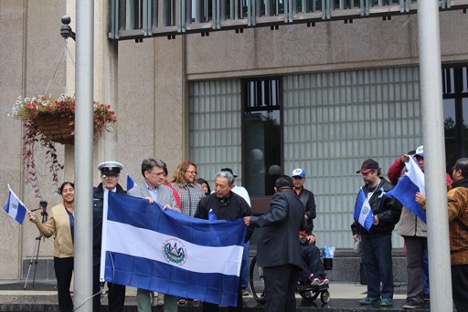
They also say there needs to be more promotion of this October-based Heritage Month because some Latinos don’t know about it or are still celebrating more in September because it contains the national day of seven Latin American countries.
“We lack unity to organize ourselves as a Latino community,” said Tezcucano, who remembered that in 2012 a group of Latinos met with representatives of the Manitoba Culture Ministry to create a Latin American Heritage Month in Manitoba but was not given adequate follow-up.
Living in Canada for two decades and an expert in food regulation, Tezcucano highlighted that with this Heritage Month, Canada is recognizing “the cultural richness we have and the contribution we make to this nation.” Since 2005, her organization has had a Mexican Pavilion at the Folklorama Festival.
Elda Juarez, of the Manitoba Chilean Association and Cultural Centre, believes that many Latinos will keep celebrating more in September than October, but “it is great to have an additional month to celebrate our culture.”
________________________________________
This story was written for the Reader Bridge as part of a partnership with Winnipeg Free Press.
Isabel Inclan has worked as a journalist for more than 20 years, in both Mexico and Canada. She began working as a foreign correspondent in Canada in 1999 for Mexican media. She has been a New Canadian Media contributor since 2018. Her main areas of interest are politics, migration, women, community, and cultural issues. In 2015, Isabel was honoured as one of the “10 most influential Hispanic Canadians.” She is a graduate of Masters in Communication and Culture at TMU-York University. She is a member of CAJ and a member of the BEMC´s Advisory Committee.

